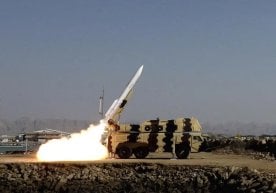Threat to Putin: Operation "Spiderweb 2.0" is under discussion...

New statements containing threats against Russian President Vladimir Putin are being widely discussed on social media, TopNews reports.
The Ukrainian blogger, who introduced himself as a military analyst with the surname Miroshnikov, openly stated that a special operation called "Spiderweb 2.0" will be conducted in Budapest. According to him, this action aims to "target only one aircraft."
Miroshnikov's statement was met with approval by a number of users on social networks. In his opinion, Ukraine "has every right" to carry out such an operation.
It should be noted that the type of operation, previously known as the "Spider's Web," is associated with the method of sudden attacks. In it, combat drones are launched from close range to the target before the defense systems react.
Thus, Miroshnikov's words imply not only the targeting of the Russian president's plane, but also the possibility of sabotage through the territory of one of the European allies.
Against this backdrop, Russian media also recalled the history of attempted assassinations against Putin. It is reported that at least twelve attempted assassinations were recorded during his presidency, and all of them were eliminated by special services. According to experts, this indicator may be higher than what is known to the public.
The first known attempt took place at the end of 1999. During his visit to Chechnya, Putin, who was then acting president, was hit by a gunshot on his helicopter. As Putin later said, the crew initially thought it was a festive salute.
In 2000, another assassination attempt was prevented at the funeral of Anatoly Sobchak in St. Petersburg. It was assumed that there was a plan to attack with snipers or a fuse. In the same year, a similar attempt was recorded in Yalta - eight suspects were detained, including those from Chechnya and the countries of the Middle East.
In 2001, Azerbaijani special services prevented a planned attack on Putin in Baku. The perpetrator was found to have explosive devices, and he was subsequently sentenced to prison.
Similar attempts have been made in recent years. In 2019, Serbian police detained a radical during Putin's visit - an optical weapon and symbols of a terrorist organization were discovered in him.
Thus, the controversy surrounding "Spiderweb 2.0" not only intensified online threats but also brought the topic of the Russian leader's personal safety back to the agenda.
Read “Zamin” on Telegram!





















